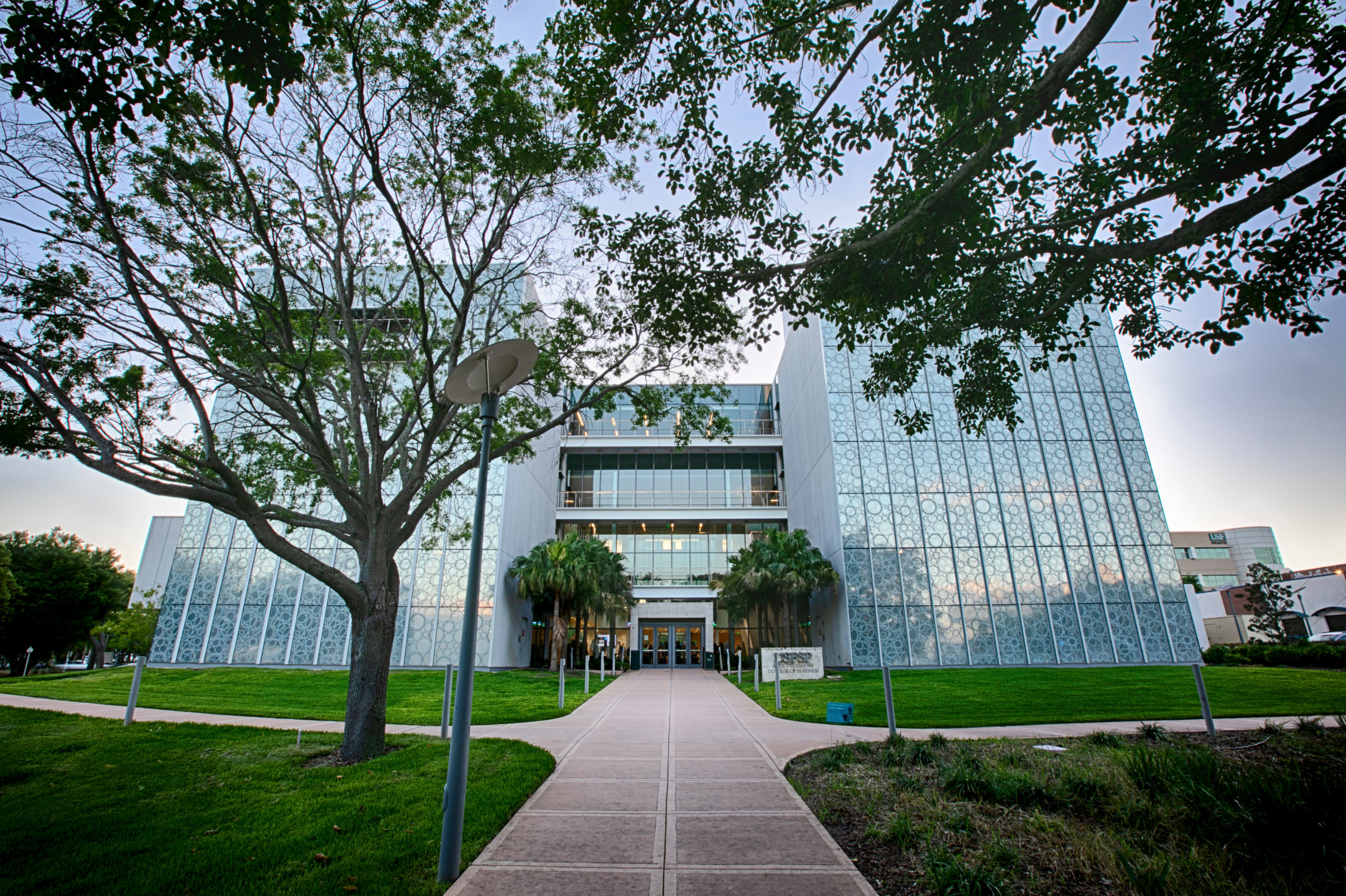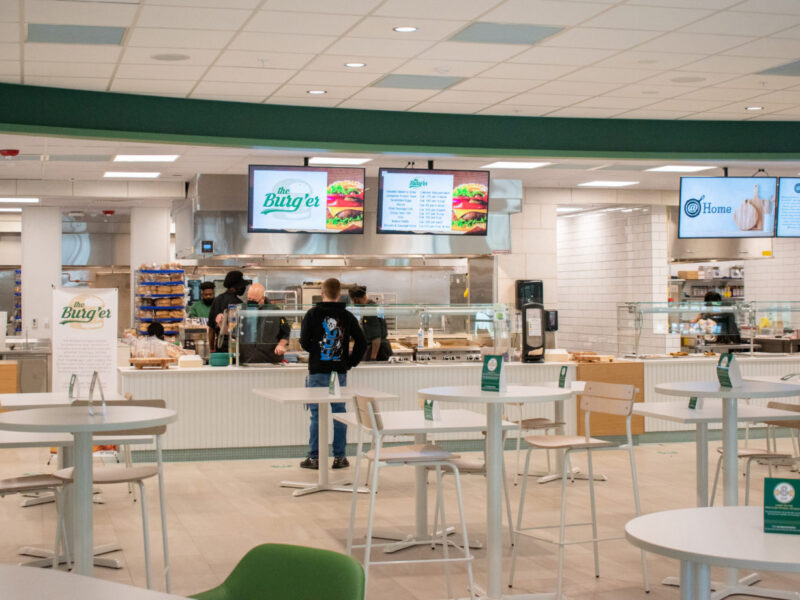Pictured above: The Kate Tiedemann School of Business and Finance is the USFSP branch of the Muma College of Business.
Courtesy of USF
By Isaiah Sterling
Students across 55 sections within the Muma College of Business may have attended class virtually instead of in-person throughout the semester. Thanks to a new course modality at USF, those students were able to do so without an excuse or prior notice.
HyFlex course options allowed business students to learn from faculty who taught courses dually and simultaneously in-person and online.
As the semester comes to an end, Jacqueline Reck, associate dean for the college, said in an email to The Crow’s Nest that a faculty survey found advantages to offering HyFlex courses.
She said the number one advantage was student flexibility and comfort.
“During the fall when the COVID-19 positivity rate was high, many students felt more comfortable participating online, and it did offer flexibility for students,” Reck said.
HyFlex courses have become popular at higher education institutions across the nation during the pandemic.
“HyFlex has been around for a while; however, the COVID-19 pandemic caused the modality to gain much more attention as schools and universities had to pivot to online delivery,” Reck said.
She said the college requested to test the modality after the pandemic and consolidation affected its curriculum delivery.
“The Muma College of Business has quite a large presence on all three of the USF campuses. As a result, ensuring that curriculum content for the degree majors is equally available on all three campuses became a challenge,” Reck said.
She also said there are disadvantages to the modality.
Reck said it is “very challenging” for professors to ensure students remain active and engaged during the delivery of HyFlex courses.
“In some cases, faculty members know the student’s computer is connected to Teams, but the student may not be ‘attending’ the course being delivered,” Reck said.
She said it can be challenging for professors to know if their students are understanding the content being taught.
“Often the faculty member cannot see the online student to ‘read’ how the student is reacting to the content being delivered,” Reck said. “It can sometimes be difficult to get online students to respond.”
If a faculty member feels a HyFlex course should meet in-person to deliver instruction, they are allowed to require it, according to OASIS.
Reck said the future of the HyFlex modality within other colleges at USF is uncertain, but any future decisions will be determined by administration.
Provost Ralph Wilcox addressed widespread faculty concern regarding the delivery of HyFlex courses at a Sept. 29 Faculty Senate meeting.
“Most of you, unless you’re in the Muma College of Business, don’t have to worry about HyFlex,” Wilcox said.
He said the course modality will “effectively challenge instructors to deliver their modality instruction to dual audiences” in the future.
The Muma College of Business will continue its pilot of HyFlex courses through the spring 2022 semester.
More information on HyFlex courses can be accessed via OASIS or by scheduling an appointment with an academic advisor via Archivum.



